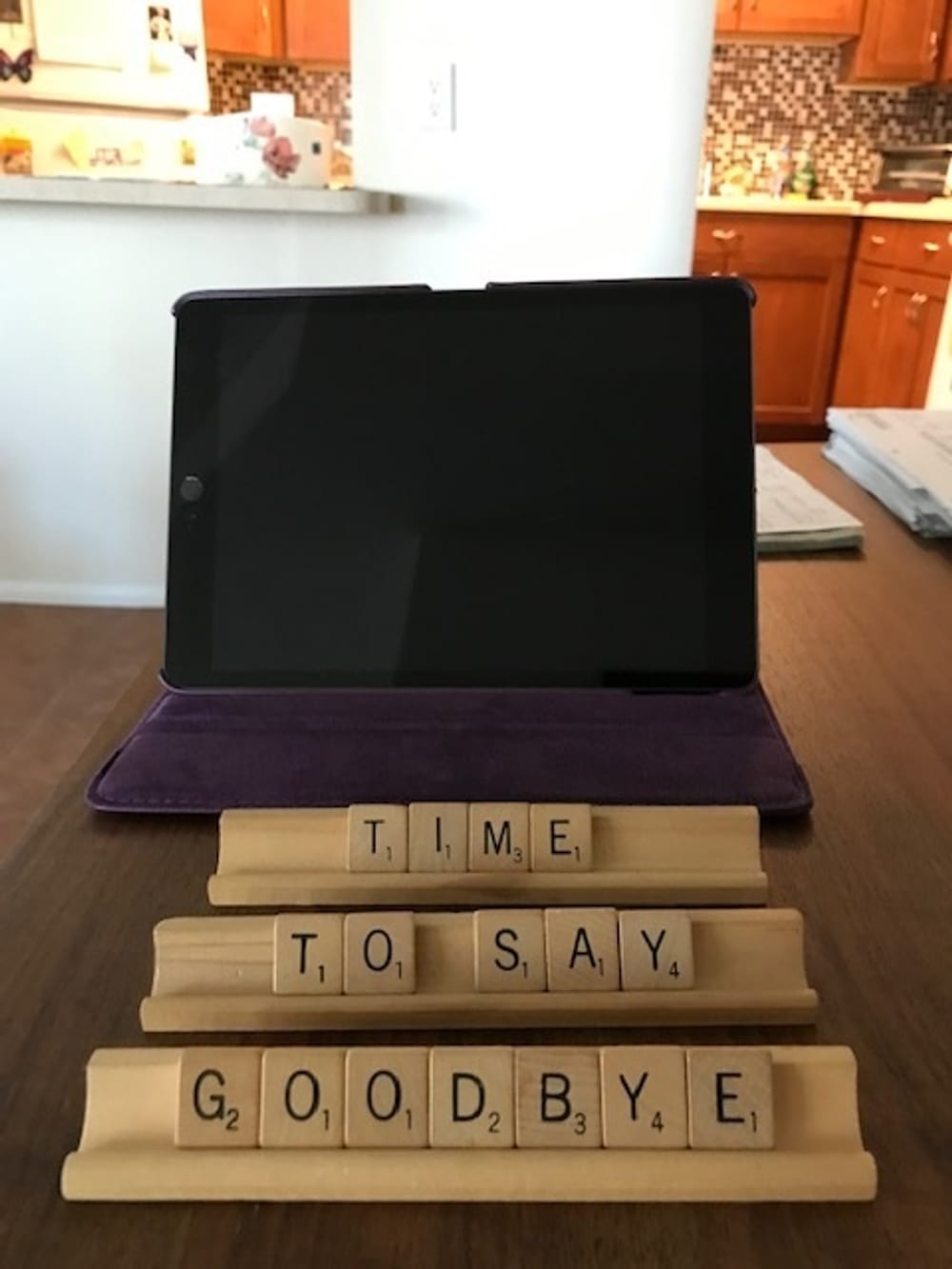Stay in the Loop
BSR publishes on a weekly schedule, with an email newsletter every Wednesday and Thursday morning. There’s no paywall, and subscribing is always free.
Trials and terminations
My therapist broke up with me—and I don’t know how I feel about that.

“Lately, you’ve just been reporting on what you’ve been doing. That’s not therapy,” my therapist told me in an admonishing tone. This would be our last session after more than a year of Zooming weekly, then biweekly. She was, in therapy parlance, “terminating” our therapist-client relationship.
This was uncharted territory for me. My only experience with termination was secondhand when a friend was suddenly “dumped” by her therapist in the early days of the pandemic. Feeling upset and set adrift without knowing why her therapist would no longer work with her, she concluded her termination was due to her therapist’s freaking out over Covid-19.
I, on the other hand, felt relieved and liberated, acknowledging, for maybe the first time, that my therapist and I were not a good fit.
The therapeutic MO
Unlike my previous therapists, this therapist was not the warm, supportive type who rooted for me when I made strides in my treatment. She always struck me as no-nonsense, dispassionate, and guarded about her personal feelings, thoughts, and opinions. That was fine; she didn’t have to be my BFF or personal cheerleader. However, I did find her one-sided, hands-off approach challenging and exhausting. She offered little or no feedback. She’d respond to my comments with questions: “How did you feel about this, that, the other thing?” “Do you think those feelings had something to do with such and such?” “What do you want to talk about today?” Otherwise, she just listened while I provided most of the audio. I often felt pressured to say something, anything, to fill our time together.
Compelled to speak the truth (isn’t honest communication crucial in therapy?), I told her several times I felt uncomfortable with her therapeutic MO but was always quick to add, “yet somehow, I think it’s working behind the scenes. I’m confronting issues I never dealt with before, which is great.” As I started to feel better about myself and my circumstances, I was willing to cut her some slack.
Also, given the dearth of available therapists as Covid continued, I considered myself fortunate to have found her through a friend’s therapist at the height of the pandemic when unprecedented numbers of people, even first-timers, desperately felt the need to be therapized. All the therapists in town were snatched up, booked solid.
A happy plateau?
I, too, felt as if I was in dire straits. A people person quarantined alone in my apartment, my normal life upended, I started spiraling downward. My lifelong struggles with abandonment, rejection, and loss—traceable to the traumas of my father’s untimely death when I was 12 and the murder of my partner, Richard, 25 years later—only intensified. I was certain I was suffering from residual PTSD. I barely slept, kept awake by free-floating anxiety and non-stop despairing thoughts. I also faced writer’s block—a red flag something was ailing me.
As my treatment progressed, I was successfully, I thought, working through some of my issues. I revived my social life, reaching out to more people once I was vaccinated. I was writing about emotionally charged topics like my dad’s death and Richard’s murder, which had become focal points in my therapy. I’d even reached a deeper understanding of my difficult relationship with my mother.
Maybe I was plateauing before my therapist terminated me, but I was plateauing in a good place. I had always heard that plateaus were part of therapy, temporary rest stops to integrate the gains achieved before moving on to the next phase. Had I progressed to such a high level there was no further benefit to be derived from my sessions? I doubted that was the case, but this therapist never divulged where I stood on the therapy spectrum.
The beginning of the end
I sensed in advance that my therapy might end when I had to miss one of our biweekly sessions and she could not see me at another time, which meant a month would pass without therapy. She had accommodated me before. Truth be told, I wasn’t upset. Our meetings had begun to feel like an imposition on my time and a drain on my energy, especially since I felt obligated to keep the conversation going.
So, when the time came to separate, it didn’t seem like a big deal. I even forgot to mention it to family and friends. However, a few weeks later, once my new reality without therapy sunk in, my termination became top-of-mind. I kept obsessing over our last session, searching for the why behind my therapist’s decision to end our relationship.
Self-esteem has never been my strong suit. Consequently, I blamed myself for failing to rise to the therapeutic challenge. But what had I done wrong? Offended her with my honest assessment of her approach? Or had she reached a plateau herself in dealing with my particular issues and at a loss on how to move me further along?
I understood that ethically, as a therapist, she was obligated to end treatment if she could no longer address my needs or if therapy was no longer effective. Which scenario applied to me? My mind even seized on the possibility that a needier patient was waiting in the wings, someone who could pay out-of-pocket, which would translate into more revenue for her. I was left feeling abandoned, confused, rejected, and angry, despite feeling grateful I had been extricated from an uncomfortable situation.
Giving myself what my therapist didn’t
On reflection, I realized my delayed reaction had more to do with the way my therapist executed our finish. I considered requesting another session to discuss my termination, but I felt too resentful to do so. I also didn’t expect her to be receptive and communicative.
So, do I jump into a new therapeutic relationship? Not yet. For now, I’ll take the time and space to accept my mixed feelings and celebrate my therapeutic achievements, giving myself the validation and closure I didn’t receive from my therapist.
Above: Saying goodbye to a therapist can be tough to navigate. (Photo courtesy of Fredricka R. Maister.)
Sign up for our newsletter
All of the week's new articles, all in one place. Sign up for the free weekly BSR newsletters, and don't miss a conversation.

 Fredricka R. Maister
Fredricka R. Maister